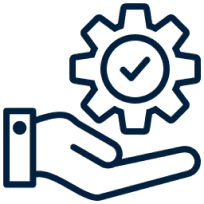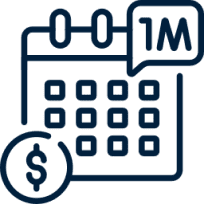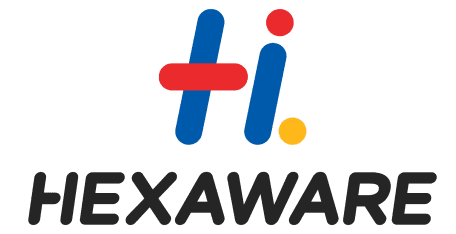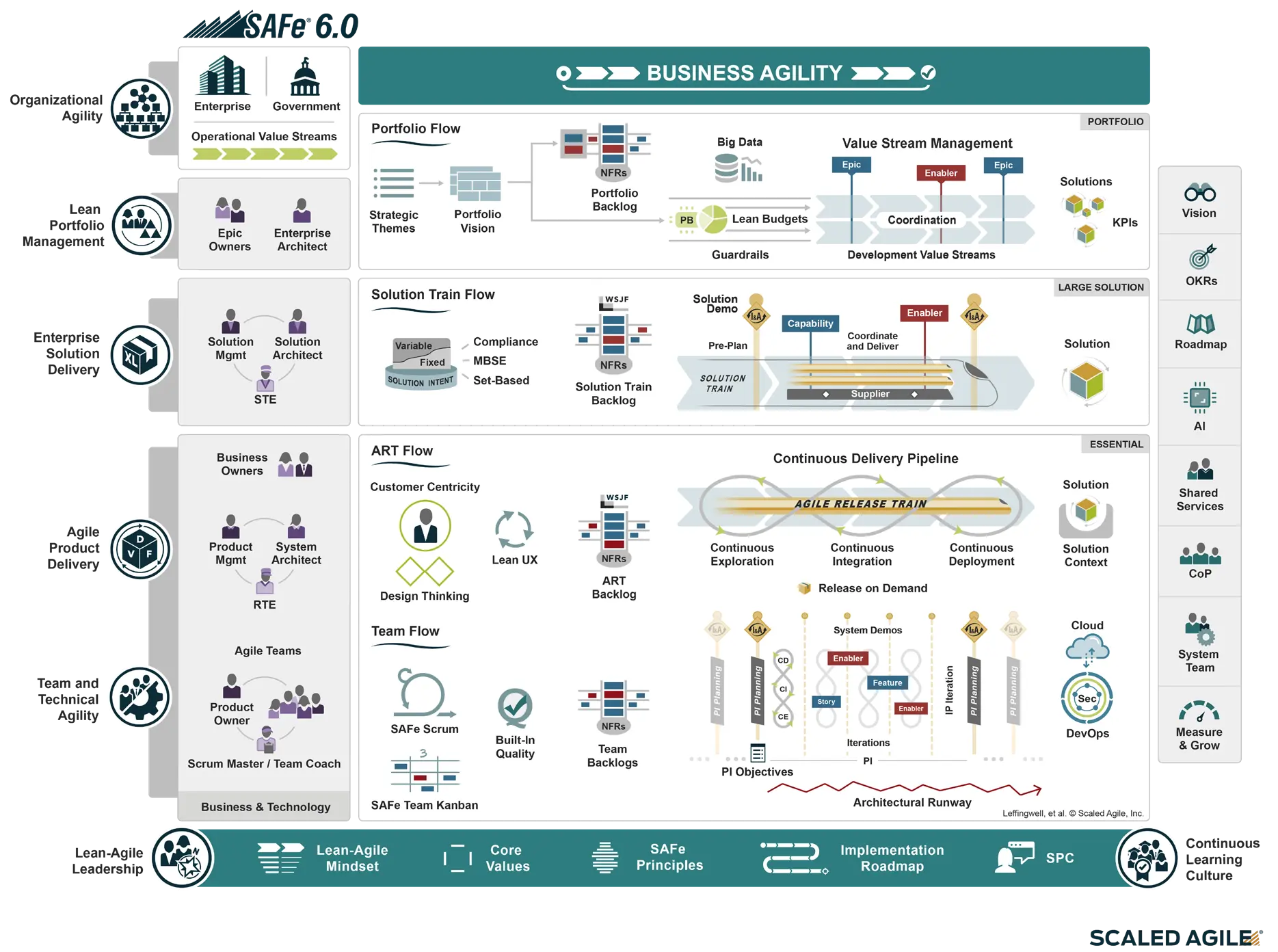

Agile and Scrum Training Course
Master Agile and Scrum with Simpliaxis to improve teamwork and deliver projects faster.
80K+ Enrolled



Guaranteed to Run Workshops

Expert-Led Study Sessions

Networking Opportunities

Flexible Monthly Payment Plans

Real-World Case Studies

Hands-On Project Experience
450K+
Professionals trained
250+
Workshops every month
30+
Trainers
450K+
Professionals trained
250+
Workshops every month
20+
Trainers
Agile and Scrum Training offered by Simpliaxis validates the candidate's understanding of Agile methodology and Scrum practices. This foundation-level training is a stepping stone towards pursuing accredited certifications such as Certified ScrumMaster (CSM), Certified Scrum Product Owner (CSPO), SAFe Scrum Master (SSM), and Professional Scrum Master (PSM).
This foundational course, led by Certified Scrum Trainers, helps professionals align conventional project management with the Agile route. It is ideal for newbies who aspire to become project managers, scrum masters, product owners, and team members involved in Agile and Scrum development. The certification equips professionals with skills to effectively implement the Scrum framework and Scrum values, improving project success rates and career prospects. In fact, Scrum Masters report an average salary increase of 25% after certification.
Simpliaxis' Agile and Scrum course provides comprehensive learning, enabling professionals to apply Agile methodology using the Scrum principles through practical exercises. It is specifically designed for organizations adopting the Agile project management (APM) framework. Upon successful completion, participants receive a recognized Agile and Scrum certificate from Simpliaxis, advancing career opportunities in the rapidly growing Agile and Scrum job market.
Excellent
80K++ Enrolled
Course Overview
Agile and Scrum Training offered by Simpliaxis validates the candidate's understanding of Agile methodology and Scrum practices. This foundation-level training is a stepping stone towards pursuing accredited certifications such as Certified ScrumMaster (CSM), Certified Scrum Product Owner (CSPO), SAFe Scrum Master (SSM), and Professional Scrum Master (PSM).
This foundational course, led by Certified Scrum Trainers, helps professionals align conventional project management with the Agile route. It is ideal for newbies who aspire to become project managers, scrum masters, product owners, and team members involved in Agile and Scrum development. The certification equips professionals with skills to effectively implement the Scrum framework and Scrum values, improving project success rates and career prospects. In fact, Scrum Masters report an average salary increase of 25% after certification.
Simpliaxis' Agile and Scrum course provides comprehensive learning, enabling professionals to apply Agile methodology using the Scrum principles through practical exercises. It is specifically designed for organizations adopting the Agile project management (APM) framework. Upon successful completion, participants receive a recognized Agile and Scrum certificate from Simpliaxis, advancing career opportunities in the rapidly growing Agile and Scrum job market.
Agile and Scrum Training Highlights
8 Hours of Live Instructor-Led Online Sessions
Gain 8 PDUs and 8 SEUs
Trained by Certified Scrum Trainers (CSTs)
Basics of Agile and Scrum Covered
Hands-On Exercises and Real-World Scenarios
Course Completion Certificate by Simpliaxis
24/7 Post-Class Support and Learning Assistance
Doubt Clearing Sessions

Career upliftment

Agile and Scrum Training offers diverse learning objectives for excelling in project management:
Agile and Scrum Training offers significant benefits for organisations:
Project Managers
Developers
Product Owners
Managers-Software Development
Architects-Software Development
Product Managers
Anyone who wants to explore opportunities in Agile and Scrum frameworks
Benefits focused on Individuals and corporate
Common attendees

Prerequisites for Agile and Scrum certification training
Learning Objectives:
Explain the significance of incorporating the four values and twelve principles into Agile projects and be familiar with the background of the Agile Manifesto. Describe the components that make up Agile's home.
Topics Covered:
Analyse Agile’s foundational concepts, focusing on their application in software development. Explore the history of the Agile manifesto and explain its principles, focusing on customer satisfaction, collaboration, and adaptability.
Topics Covered:
Learning Objectives:
Learn why discussions matter more than assignments. Explore methods to prioritize user stories, understand business value, and define key product terms. Master writing effective user stories and their maturity stages.
Topics Covered:
Learning Objectives:
Explore the various Agile variants, including Scrum, Kanban, XP, Lean, and FDD, at a high level. Explain the usage patterns of These variants.
Topics Covered:
Learning Objectives:
Explain APM as a 5-stage process for Agile software development. Gain an understanding of the needs, deliverables, and activities involved in the Envision/Speculate/Explore/Adapt/Close phases of an Agile project.
Topics Covered:
Learning Objectives:
Discover the Scrum Guide, a cornerstone in understanding the most popular Agile framework, Scrum. This guide plays a significant role in the framework's popularity.
Topics Covered:
Learning Objectives:
Understand the Scrum framework for Agile project management. The Product Owner, Development Team, and Scrum Master collaborate in events like sprints and daily scrums using artefacts like product backlog to create a potentially shippable product at the end of each sprint. Other stakeholders include users and customers.
Topics Covered:
Learning Objectives:
Explain why estimations are required in a project. Understand the different formats of estimation in Agile and explain the details of playing Planning Poker. List the types of agile estimates.
Topics Covered:
Learning Objectives:
Explain the different levels of Agile Planning and their purpose. Explain the need, scope, deliverables, and timing of product planning/ release planning/sprint planning.
Topics Covered:
Learning Objectives:
Explain why we have info radiators in Agile. Learn how to interpret a burn-down chart, a burn-up chart and a Cumulative Flow Diagram (CFD).
Topics Covered:
Learning Objectives:
Explain the need for Agile metrics, and describe details of a few Agile tools.
Topics Covered:
Learning Objectives:
Explain the application of Agile at the enterprise level and learn the high-level details of SAFe®, DAD, and LeSS.
Topics Covered:
Learning Objectives:
Explain the available certifications in Agile and understand the basics of Enterprise Agile.
Topics Covered:
COURSE Curriculum
Learning Objectives:
Explain the significance of incorporating the four values and twelve principles into Agile projects and be familiar with the background of the Agile Manifesto. Describe the components that make up Agile's home.
Topics Covered:
Analyse Agile’s foundational concepts, focusing on their application in software development. Explore the history of the Agile manifesto and explain its principles, focusing on customer satisfaction, collaboration, and adaptability.
Topics Covered:
Learning Objectives:
Learn why discussions matter more than assignments. Explore methods to prioritize user stories, understand business value, and define key product terms. Master writing effective user stories and their maturity stages.
Topics Covered:
Learning Objectives:
Explore the various Agile variants, including Scrum, Kanban, XP, Lean, and FDD, at a high level. Explain the usage patterns of These variants.
Topics Covered:
Learning Objectives:
Explain APM as a 5-stage process for Agile software development. Gain an understanding of the needs, deliverables, and activities involved in the Envision/Speculate/Explore/Adapt/Close phases of an Agile project.
Topics Covered:
Learning Objectives:
Discover the Scrum Guide, a cornerstone in understanding the most popular Agile framework, Scrum. This guide plays a significant role in the framework's popularity.
Topics Covered:
Learning Objectives:
Understand the Scrum framework for Agile project management. The Product Owner, Development Team, and Scrum Master collaborate in events like sprints and daily scrums using artefacts like product backlog to create a potentially shippable product at the end of each sprint. Other stakeholders include users and customers.
Topics Covered:
Learning Objectives:
Explain why estimations are required in a project. Understand the different formats of estimation in Agile and explain the details of playing Planning Poker. List the types of agile estimates.
Topics Covered:
Learning Objectives:
Explain the different levels of Agile Planning and their purpose. Explain the need, scope, deliverables, and timing of product planning/ release planning/sprint planning.
Topics Covered:
Learning Objectives:
Explain why we have info radiators in Agile. Learn how to interpret a burn-down chart, a burn-up chart and a Cumulative Flow Diagram (CFD).
Topics Covered:
Learning Objectives:
Explain the need for Agile metrics, and describe details of a few Agile tools.
Topics Covered:
Learning Objectives:
Explain the application of Agile at the enterprise level and learn the high-level details of SAFe®, DAD, and LeSS.
Topics Covered:
Learning Objectives:
Explain the available certifications in Agile and understand the basics of Enterprise Agile.
Topics Covered:
What you will learn in this Agile and Scrum workshop
Learn the core values and 12 principles of Agile methodologies and explore different variants, such as Scrum, Kanban, and XP.
Master the art of creating user stories to capture customer needs and prioritize development efforts.
Discover how to plan projects effectively using product, release, and iteration planning workshops.
Learn how to conduct and participate in key Scrum ceremonies: Sprint, Sprint Planning, Sprint Review, Sprint Retrospective, and Daily Scrum.
Explore techniques like Story Points and Planning Poker for Agile estimation, and learn to calculate and utilize Agile metrics to measure progress and improve performance.
Understand how to scale Agile practices successfully within large enterprises, ensuring alignment and collaboration across teams.
40+ Certification programs made an impact
Employee retention improved by 45%
Work satisfaction and capabilities improved by 30% on an average
100+
Clients













Agile and Scrum Certification COURSE For Corporates
Simpliaxis provides In person and live virtual instructor- led corporate training program customized for enterprise teams who wish to train their employees on specific aspects of their job processes or responsibilities. The corporate training by our expert certified trainers will enhance your learning curve and enable your teams to utilize their skills to meet the industry standards
Our Customer words for us


















SAFe Big Picture
- Achieving Business Agility with the Scaled Agile Framework (SAFe)

Meet the Team That's Invested in Your Success
Instructors
View All TrainersAgile and Scrum Course FAQs
Agile and Scrum certification offer many benefits apart from opening many job opportunities and career path:
The three primary roles in Scrum are:
After completing Simpliaxis' Agile and Scrum training course, you will gain a solid foundation in Agile principles and practices.
To further validate your knowledge and expertise, consider pursuing one or more of the following Agile Scrum Master certifications offered by globally recognized accreditation bodies:
Each certification has its own eligibility requirements, exam format, and focus areas. Research the different options to determine which certification aligns best with your career goals and interests.
You can reach out to our experienced career counselor
or email us on support@simpliaxis.com
or contact any of our phone numbers
or you can chat with us anytime
or visit our contact us page https://www.simpliaxis.com/contact-us